generation hope
a podcast from connect.faith“Expression of Beauty” with Danielle Mareka | Generation Hope | connect.faith
Join us as we talk with Danielle Mareka, fashion model, producer, and community organizer based out of New York City.
—
“I put myself out there and I kind of got used to… (not) internalizing a lot of this stuff when I didn’t have a full scope of where I sat in the industry, my experience level. And also just like, sometimes it’s just right timing, right, right place, right time and a little bit of luck as well. So I had to learn a lot of those things and go through a lot of nos, but I’m so grateful for how everything’s played out and how I’ve been able to kind of mature without jumping into something because, you know, I wanted someone to give me a chance” – Danielle Mareka
Transcript
[00:00:00] Cali Bronkema: Welcome to Generation Hope a podcast by connect.faith. This season, we’re talking to young adults who are pursuing careers that don’t always have linear paths to entry. We’ll be talking to musicians, visual artists, and lots of others about the unique challenges and rewards young creatives can face as they turn a passion into a career.
[00:00:33] Today, I’m talking to Danielle Mareka, who is a fashion model, producer, and community organizer based out of New York City. Thanks for being here.
[00:00:44] Why don’t we just start with you telling us a little bit about yourself?
[00:00:48] Danielle Mareka: I’m a Guyanese migrant. I come from a single parent, all-fem household. And I’ve always had an interest in fashion, but given my background, my family doesn’t really understand career paths that are non-traditional.
[00:01:06] I just went with what I was good at, or like excelling at in high school and like throughout our more formative years and then got to NYU and I ran track there and I ended up meeting a lot of people on my team who basically were into fashion, film, photography, and I ended up doing my first developed photo shoot with one of my teammates, because they were interested in photography and we literally went into one of the dorm buildings, like the game rooms and set up a backdrop and all this other stuff. And that was like my first kind of shoot.
[00:01:49] And then from that point I don’t know what led me to this or what gave me this conviction, but I just kept kind of following my heart and using Instagram as a tool and just like posting. I remember there was a time where I was posting every single day and I didn’t really care about the external perception was, but I realized that it was leading to people, either sending me castings, just opportunities that they thought might be a fit for me. And I ended up sophomore year going to fashion week castings and then walking my first fashion show for an official and I was able to walk for Kim Shui.
[00:02:30] And then following that, I ended up meeting a casting director for Milk Makeup out at like, a Black Girl Magic event. And then I did BlackkKlansman. Like it was very, it was like this momentum that just kind of took it off. And I will say I was pretty naive and just feeling like, oh, this is it. I figured it out. It’s going to work out right now.
[00:02:52] Yeah, I remember just, especially with the security net of being in college and living on campus and all of that stuff, I just felt like everything was going to be like a breeze. And that is just not how it works, at least in my experience. But I graduated a year or a semester early thinking that I was just going to dive right in and get an agency at the time.
[00:03:16] I was really focused on getting signed to an agency and doing my own photo shoots, or setting up, shoots myself with friends or just people that I was just very vigilant. And one opportunity kind of leads to another. And then with graduating and just getting more experience, I got signed about two and a half going on three years ago to my first New York agency and was still largely because they are an agency that’s non-traditional as well.
[00:03:47] And it’s called We Speak Models, but it’s really, the motto was for models by models. So it’s all about just really retaining your autonomy and individual identity, because that’s not always celebrated in the modeling industry. In terms of people kind of having a vision for how you should be presented.
[00:04:09] And I’ve never really been that type of person to kind of follow what someone else gonna tell me, like how I’m going to present myself or how I’m going to kind of fit into the mold. It was a really good fit. And I think as I was growing and learning a lot of things, they were growing and learning a lot of things.
[00:04:27] And then I got signed to an LA Agencey so I’m definitely just like, there’s a lot of learning when it comes to the industry, because there’s no one really guiding you. It’s a very individual career path and just experience, you can’t really compare it to someone else’s.
[00:04:46] But that’s like, that’s kind of where I’m at now and yeah.
[00:04:50] Cali Bronkema: That is quite the journey. And I appreciate how you said. Things were going really well. And I was kind of naive and thought I have this figured out. We’re good to go. All right.
[00:05:03] I was wondering, you said at the beginning, right when you first started that you weren’t sure exactly what kept you interested or why you decided to make that first step, but you did it and you went for it. Now that you’re a few years into this and you you’ve kind of dedicated yourself to it. What does keep you going, what is it that you enjoy about being a fashion model that, that makes you want to continue pursuing it?
[00:05:34] Danielle Mareka: So I really believed that expression through beauty or just like whatever that means to you is really transformative and it can really shift your perception of self and also how people receive you. And at the end of the day, it’s all about being confident and finding that self-love. Just radiating that.
[00:05:54] And I think that’s a really attractive for us. And that’s really where my interest lies. I love to just, I love really like interchanging my looks and especially my hair. I’ve learned so much about how to do my own hair, experiment with different looks and even, and it’s kind of gone beyond hair. It’s gone into makeup and the pandemic. I was really experimenting with makeup and that led to three Beauty Vogue features and two headlines where I was sharing an article with Doja Cat and Ashley Graham and those types of people.
[00:06:30] You know, I’ve, I didn’t really understand how creative I was growing up. And I think I was really focused on sports and like academics and these other avenues, but at the core of it all, I feel like going to college really helped me discover that I’m multi-verse and that I’m I’m creative. So I feel like I got the space to just kind of experiment in that way and to get back to what keeps me going. I think once I did projects or once I did jobs where I wasn’t really at the beginning getting I was . Unrepresented, I learn to negotiate advocate for myself and when I was booking those things without an agent, a lot of people, honestly, my community kept reinforcing like, no, you like, you’re doing it. And we see that in you and that kind of validation.
[00:07:28] And even just, I remember early on, I did like a small gig for Milk Makeup. I did a campaign for Glossier and those types of things, I was like, okay, this isn’t necessarily financially stable right now, but I’m in the right direction.
[00:07:44] Cali Bronkema: I love you started off by saying expression through beauty is such a, a wonderful thing, and I love that framing of it.
[00:07:52] You talked about how that was really important to you because individual autonomy is not always celebrated in modeling, but then you also talk about how creative you get to be within this, this field.
[00:08:05] How do you find those two things playing with each other, where you’re trying to be, to show off your creativity and follow that passion of yours, but also in an industry where sometimes you’re just being told what to wear and what to do. How do those two things play into each other? And how do you deal with that?
[00:08:27] Danielle Mareka: So I think I’ve been really blessed with a unique kind of experience where my agency is really not traditional and they kind of framed it where, especially where they were kind of early on in, in their journey as an agency, they’ve grown so much since then, but in that time, I think their real message, they aligned with my values and their real message was we want you to be you. And there’s open communication you know, I’ve seen contracts where they’re like, you are not to touch your hair, color it, cut it unless you are notifying your team.
[00:09:03] You know, and I not, I just can’t, I wouldn’t be able to do flourish in that environment. And you know, especially as a black woman, like I change my, my appearance all the time. And I feel like specifically, of course my hair that’s really what I’m referring to, but I just feel like they really understood me and I met with, so my mentor and friend is Coco Mitchell, the first black model for Sports Illustrated.
[00:09:32] And she’s still working for this day. And she’s very iconic. If people don’t know her, you should look her up. But absolutely a pioneer in this space, especially for black models. And she herself, I met with her last weekend and she was saying, I never really played the game or like played into things. And I never really saw it . That way.
[00:09:55] I always have tried to stay true to myself. And I feel like We Speak honors that and because I’ve built that president or that aura, the people who I work with also, I think see that in me and we align now.
[00:10:09] So I feel like a lot of people, it’s not really, you know, it’s a lot of personal relationships and growing designers and as they’ve gotten bigger and they’re, you know, in Target or they’re making these moves. Going from independent to “mainstream”. I’m being celebrated for me, or like I’m being chosen for jobs that celebrate black beauty or like certain things I talk about.
[00:10:33] So I just feel blessed in that regard. And I think that, you know, there is a line with like understanding where you might have to play down certain things and play up certain things. But I do feel like I’ve been able to just kind of, I’m making the rules. Yeah, grateful. And my, my, I really think that’s because of We Speak in the environment that they create, honestly. And just the community, they really try to enforce like happens in meetings of all the models and like challenges and picnics. And I don’t know what other agencies do cause it’s, like I said, it’s kind of like working for, you know, different companies.
[00:11:15] So it’s like, you know, every company has its own kind of environment, but I really love how they’ve done things. And before I got signed to them, I had been dropped from managers. I had been like almost signing questionable contracts and then having, you know, a friend’s parent who was a lawyer, revise it and try to jump in and advocate for me.
[00:11:38] So I feel like I’ve had a lot of protective experiences where people either they, and I said this earlier today, but sometimes rejection is protection. And I feel like, you know, a lot of people go to open call where you, if you’re not familiar, that’s almost like an open audition. So you can just come into an agency and, you know, they take photos of you, you walk, you kind of meet whoever’s like reviewing everyone that day. But you know, you’re competing with sometimes, especially when it’s summer time and people aren’t in school and all of that stuff, it’s like, it could be hundreds of people coming a day. You know, you’re just shooting your shot. You’re just trying your best and like an experience.
[00:12:22] And I did so much of that from, I started this journey when I was 12, but because of being so young, being in school, I remember I started to miss some classes and my mom’s like, this is it. You’re not doing this.
[00:12:34] I just think by putting myself in those situations, I don’t know. I put myself out there and I kind of got used to –the modeling industries have beyond rejection. You know, being told no and wondering why me and internalizing a lot of this stuff when I didn’t have a full scope of where I sat in the industry, my experience level. And also just like, sometimes it’s just right timing, right, right place, right time and a little bit of luck as well. So I had to learn a lot of those things and go through a lot of nos, but I’m so grateful for how everything’s played out and how I’ve been able to kind of mature without jumping into something because, you know, I wanted someone to give me a chance or. Yeah.
[00:13:22] Cali Bronkema: Yeah. It seems like you built a support system around you through your agency, through people’s dads who were lawyers who would stand up for you, but like, it seems like you knew your value and you surrounded yourself by people who knew it too. And those were the people who, who could take you farther on the journey.
[00:13:44] So you mentioned a little bit. Well, you’ve mentioned throughout some of the hardships of the industry, the rejections of it. And then also how it is seen as a non-traditional career. And there are a bunch of stereotypes that come with this career. I wonder how, first of all, how many of those stereotypes you have found yourself facing and what fighting against that has been like both professionally and for your mental health.
[00:14:20] Danielle Mareka: So I think the hardest thing about modeling, especially when you’re starting out is rejection. Whether it’s people to your face, you know, a lot of things are done over Zoom or over email now, or virtual castings. That’s a lot of stuff happens now, but when I was really starting to do this I would go to an agency in person go to an agency in person. And, you know, someone would slip, open your book right in front of you and be like, no, thank you. Or like I had a really, you know, just, just a lot of those where you’re like really questioning yourself. And I feel like that’s the one thing you know, you do have to be really thick-skinned or develop that and not, and just like, not really take things too personally and I know that’s virtually impossible, but you learn to kind of separate the business side of things and then you as an individual.
[00:15:26] And I would say, you know, some stereotype, some other stereotypes. Well, the first one I’m referring to, it’s how tough it is. And the other one is there’s an assumption that, you know, there’s a lot of wealth around the career, or like, I feel like my perception and I guess it’s naive, but was that it was going to be so smooth. And then I was going to be so set up so quick and it doesn’t work like that. You know, a lot of this stuff is. Based on building a network and a clientele. If you have good relationships with your clients, you know, it’ll, it’ll foster and will grow and you’ll continue to, someone will recommend you somewhere.
[00:16:11] But I never really, that was something that I struggled with at first. And I feel like I’m now affirming to myself that you’re okay, you know, you’re doing it. And. And you’ve progressively gotten more and more accomplishments are more and more opportunities. You know, I think that’s the biggest thing is that in the beginning, I feel like I had no concept even of like certain financial stuff for how to, how to negotiate– that’s another thing like you have to be able to, especially starting off, my experience was independent, you know, I didn’t get signed right away. So it took like two years for me to even get one agency to take me seriously after had been to so many, I honestly visited all of them, every single open call that I could go to.
[00:17:04] And I would repeatedly every three to six months wrote back and it was really persistent, but I think that’s the thing. And in terms of mental health, I feel like I was younger and I understand how that did take a toll on me, especially with like graduating feeling like I kind of had to bare everything on my shoulders and that no one before me that I like no one before me, I felt like had this path laid out.
[00:17:33] Like I was making my own example and you know, that’s confusing, that’s uncertainty. And I just, I didn’t want was know, and I don’t like, I don’t like that. I’m a Capricorn I don’t, I don’t like that. So I like to be in control. I like to kind of know what’s going to happen next. And that’s something that I really struggled with.
[00:17:56] But I also want to touch on race. And the fact that I will say the industry has grown and become more accepting of whether it’s shapes, genders, like, race and just changing the narrative, but there still is a level of, you know, conservatism that has been fully addressed and it’s partially, still performative in my opinion and I’ve feel like we’ve gotten a lot better.
[00:18:29] You know, I have shoots, I had a Mac shoot recently and there was essentially an all-black team from the makeup artist, to the stylist, to her assistance and that was really beautiful to see such a major corporation. And one of the nail techs was telling me that she’s been in this industry for over 20 years and it was never like this.
[00:18:47] So I appreciate how far things have come. But I feel like in terms of. Whether it’s the runway, you know, or commercials, or just like just seeing certain clients and how they might use to, or just play into tokenism, I’ll say it that way. But, so those are some things that I think still needs some work, especially because I am Guyanese-American, so I also am not african-American and my experience is a little different.
[00:19:26] Cali Bronkema: I think one of the things that, that popped into my mind as you were talking was the idea of, of the traditional beauty standard, right, and like what we expect to see upheld as this is what a beautiful person looks like. But, so how have you been able to push back maybe against some of those traditional beauty standards through, through the work that you do?
[00:19:52] Danielle Mareka: I think a lot of fashion sometimes celebrates a very clean um, especially when it comes to like high fashion, a very like clean look or they’re just appealing to a certain, certain type of look, I don’t really know how to say it, but the best way I can describe it as like this clean, simple look.
[00:20:17] And I feel like I’m really into experimentation. And I think whether it’s me organizing my own shoots and being able to work with friends who let me kind of share my vision and trust me in that I’ve been able to create my own stories and like my own fantasies and So I’ve, I think in that way I’ve been unconventional in a sense, cause I don’t really that’s another way. I don’t think I play into things. But separate from my specific work in terms of shooting, I also gained a following on TikTok because I was sharing tips about how to become a successful independent model or start your modeling career through just my own life experience of jumping into it. And a lot of people are like, oh, I’m not tall, I can’t model. And it’s like, if you don’t live in New York or somewhere like LA, but I feel like New York is the best range, has the best range of just diversity and really unique projects and casts and it’s just looser in terms of who they’re willing to have just be showcased in a show.
[00:21:29] I always tell people that’s like the number one thing people say like, oh, I’m not tall. I’m not skinny. And I’m like, you don’t have to be that. You really don’t. There’s such a wide range of jobs, whether it’s beauty, whether it’s parts, which is like hand and jewelry, like ears and stuff, like there’s such a range of like things people can do that you don’t think of.
[00:21:48] I think the comment, like, people just jump to the idea of runway and that’s just not the only form of modeling. And it’s, it’s very specific, but I think of course, runway has a long ways to go, but they’re, even that, it’s like, I don’t see, I see castings in New York or people are not 5′ 10″ and up, you know, like there’s petite models now.
[00:22:13] And it was very successful models doing a lot of beauty campaigns and working for brands like Pink and that are my friends. So I just see it in real time and I think by reinforcing that on platforms like that, where it might be a younger audience, I think that’s a way I’ve noticed people having a new perception of the industry in the modern in today’s world.
[00:22:40] Cali Bronkema: Yeah. I want to talk more about, on the theme of, “in today’s modern world,” you mentioned at the beginning that you used Instagram as kind of a stepping stone to get into this. And then you just mentioned that through TikTok, you’ve been able to gain more of a following. And one of the themes that has come across as I’ve been interviewing people for this season is the issue of access and the issue of, like, I talked to some visual artists and it costs money to apply to every art gallery. I’m assuming it costs money like if you need headshots taken for an open call. And so I was wondering how you might see social media as a tool when it comes to that challenge of access and what the pros and cons are there in the world of modeling.
[00:23:32] Danielle Mareka: Okay, so I’ll start with a con and then we’ll end on a positive note. The biggest con that comes to mind is feeling the pressures of social media, becoming a job instead of a place that I really enjoy. I don’t look to it as like any type of personal space. It’s really just for me to keep connected with people in that sphere of like modeling fashion and entertainment. And, and the inspiration that helps me with my own projects.
[00:24:04] But I don’t utilize it to connect with friends or family or people that I’ve known. I’m like, if you have my phone number, we’re cool. But like, I don’t use, I don’t use Instagram in that way. So I think that, you know, there was a time where I felt really pressured, like I said, I posted every day at one point and I felt the pressure to keep up with that. And, you know, I’m thankful that I’ve kind of let go with that, but there was a time where I felt very strongly about it. I felt very stressed about if I didn’t have a certain amount of likes or if it didn’t resonate with people.
[00:24:44] And I felt like it was a direct reflection of clients, given that I was taking the independent route. It’s not like an agent was just setting me up with a client. You know, I really have to be vigilant and looking for castings, calling casting directors, being just vocal and people being like, okay, this is what she’s asking for she’s putting out. And people kind of just reciprocated that and really tried to help me, because, I just, like I said, every agency rejected me at first, you know, so I, I would really be open about it too, in terms of people that I was meeting along my journey in the industry or knew or friends, you know, in the sphere of, at all.
[00:25:26] So that’s the con I would say that’s the biggest thing for me. And I’m very grateful that Instagram introduced hiding likes because I think it’s just very freeing to just be like, this is how I want to showcase myself. No company is going to ask me the engagement rate or calculate my engagement rate without, you know, like there’s certain things that go behind advertising and marketing using your platforms.
[00:25:52] The pros are that I think you’re exposed to opportunities you would never really have access to or know beforehand. And when there’s casting directors that really leave it open to anybody so if you see it, you know, you jumped on that opportunity and I’ve gotten, I was in like years ago, I was in like a Young Thug / Lil Yachty music video, or like things like that, that I just saw on Instagram.
[00:26:17] And I ended up building a relationship with the casting director. You keep in touch over all of these projects, you know, over time. So I think it’s a great tool, but it’s a double edged sword. And in terms of TikTok that to me is a huge driving force for growth. Because the way that’s set up is that they really push, you know, you discovering new people that you wouldn’t be exposed to otherwise. At first I treated TikTok like it was a joke and I was just like laying around and honestly like doing like dances and just like having fun. But then I realized there was this, I didn’t really see models talking about my experience or what I had like, I kind of started to put that together. And as I spent more time on it, I was like, I should make a video and just do, like, I think it started with like how to become a model or like Modeling in NYC. And I compiled videos of like old shoots that I had or whatever. And then, you know, I did one “how to” to where I started speaking about, you know, just sites that you could go on and not too slowly, but it started to take off.
[00:27:31] And I ended up getting from like 300,000 to 500,000 views. Like I got almost 900,000 on one of them and then 3 million on, you know, so my account really started to grow. I started to just focus on that, on my niche, and it would really introduce me to just people that were genuinely interested in fostering this like belief in yourself, because at the end of the day, at least in New York, I know it’s different in Europe, it’s different in these other places, but here you can genuinely be successful if you’re just confident.
[00:28:04] Cali Bronkema: What you talked a little bit about at the very beginning The fact that this is, I think you used the term a non-traditional career. So if you were approached by someone who maybe was thinking about getting into this world, but their family really wanted them to, I don’t know, be a doctor or a lawyer or something that was a little more financially stable, the structure was more familiar to them, what advice would you give that person?
[00:28:37] Danielle Mareka: So I would advise them to at least my cultural background, I felt like I had to honor that and at least set myself up for “a Plan B”. I don’t necessarily believe in like, setting yourself up for a Plan B because you might fall into that. I just wanted to have that security, which, and I felt like I felt very confident in the fact that no matter what I have a public health and sociology degree, and I feel like I can spin that in a way that suits me.
[00:29:11] And I just think that I do believe if you think it’s right for you, that you should pursue your education because it taught me, it’s not even just about the degree that I got. I think the people I met, the environment being in the city, all of that really helped shape this. You know, it’s not just the classes I went to.
[00:29:32] So I do believe in like having that experience but still pursuing, I was, I was pursuing it on the side of, you know, getting my internship in a way. So I think if you’re interested, try to get an early, as early as possible, try to see if it agrees with you. If you like it, you learn through experiences and take it from there.
[00:29:54] And if it, if you don’t like it, if it’s not for you, you know, you go from there, but at least, at least try. And I think time timing is if you can do it right, we’ll be on your side. And I think at the end of the day, it’s, it’s best to try everything. You know, I know models that try to assist or there’s such a range of things to do in fashion.
[00:30:16] And a lot of people view it as this jumping point, but you can be a stylist, you can be a casting director, you can be a makeup artist, a nail tech, a hairstylist, you know, so it’s whatever the photographer, the creative director, the art director, the set designer, there’s so many layers I didn’t know existed in production or in setting up these photos and the more you put yourself in that environment, you’ll be exposed to more. So that’s, that’s my advice.
[00:30:49] Cali Bronkema: I love that. And I love the framing of, it was just like an internship because that’s totally something somebody could take back to the parents and be like, it’s just an internship.
[00:31:00] Danielle Mareka: Exactly, exactly.
[00:31:02] Cali Bronkema: Okay. I think those are all the questions. I had written down. Is there anything that we didn’t get to that you wanted to talk about?
[00:31:13] Danielle Mareka: The one thing I wanted to say is that I don’t think I always knew, one, I didn’t always move in confidence. I didn’t always appreciate my beauty. I didn’t always love myself.
[00:31:26] You know, I kind of had find, I had to grow as a person, but I also had to find an appreciation for myself and that took time and that’s a growing up and I don’t want it to come off as like, uh, I just, I just followed my heart and I was like, this girl that walked in the room and I did that, like, no, I’ve had plenty of being rejected, feels disheartening, but I’ve had embarrassing experiences in agency.
[00:31:56] I remember the first like big open call I went to, I was 12 or no, I had just turned 13. And there were these guys shirtless, like I just was not exposed to that. I was really young. I was really uncomfortable. I didn’t know. You’re supposed to bring heels to those things. I didn’t really know how to walk.
[00:32:15] You know, you’re going in front of everybody. Like there’s certain environments where you have to just do it in front of everyone that’s there. And it was scary. It was really scary. So I think the more you throw yourself in it, I, over time, over years ended up growing my armor or building my armor. And I’m at a point where, you know, when I walked into a room, I’m very comfortable in my own.
[00:32:45] And I remember being on shoots, being like, I don’t really know people would be like, how are you? I’m like, don’t know what, I don’t know what apartment I’m going to move into. I couldn’t know, like, you know, figuring out just being an adult because I was transitioning to adulthood and it was confusing and, you know, but I think you just have to kind of be open to putting yourself out there.
[00:33:09] Cali Bronkema: Yeah, I like that. You’re admitting that, like, you can say all this now, but back then it was…
[00:33:18] Danielle Mareka: Yeah, that’s the truth of it, honestly.
[00:33:22] Cali Bronkema: If people want to know more about you or connect with you, how can they get in touch with you, or, or where can they follow you?
[00:33:30] Danielle Mareka: Okay. So my name is Danielle Mareka, it’s @daniellemareka on all platforms. I’m soon coming to YouTube, I want to be more, I want to be more in depth in. There’s a certain cap, I think, to TikTok in terms of how much you can showcase and speak on, because it’s more catered to short form content, but I would love it’s very intimidating, but I would love to get into YouTube.
[00:33:57] And in terms of contacting me, I do have a discord page so I welcome people just DM-ing me on Instagram and there, I’m trying to build a community where people ask questions about modeling. And can kind of have a direct line to me as well .
[00:34:13] Cali Bronkema: I love that you’re so open to, to helping others and, and making it a little bit easier for the next person. All right, so this podcast is called Generation Hope because I try to interview people who I think will give hope to listeners through experiences that maybe never gotten to really hear the backgrounds of before or it’s listening to their experiences of overcoming hardship or overcoming the really embarrassing things at 13 and now being hugely successful.
[00:34:47] Right. So that being said, your the hope is that you’re offering hope to someone out there right now. I’m going to turn it around on you and ask you the two questions I ask everyone that comes on this podcast. So the first one is what gives you hope?
[00:35:06] Danielle Mareka: What gives me hope? I think what gives me is honestly waking up each day and being alive.
[00:35:17] Not to be too shocking, but last year in June, I got into a truck accident where I was driving a car in the city and I got hit by a really big truck, but I, the car was totaled, but I had like two scratches on me and I honestly have chills talking about it, but I’m just very grateful to be alive and to go through something essentially unscathed.
[00:35:45] Every day that I wake up as a blessing. And I just have a mindset where you have to make the most, even if you’re resting, I’m not saying you have to be out here overly productive, but just making the most of your time and being intentional. That’s the word. Yeah, that, that is kind of my new mindset and my framing.
[00:36:06] Cali Bronkema: Yeah, that gave me chills too. That’s whew, wow, that was beautiful. So my last question for you is what do you hope for, and that can be for yourself, for the country, whatever scale you want, but what do you hope for?
[00:36:21] Danielle Mareka: Well, on a personal note, I do hope for a Vogue covered very soon I would love that. Aspirationally, I would love to get more into TV and film, and you know, the lead in Squid Game, she, it was a model like she started out her career as a model. And those people give me a lot of hope. And I love modeling, but you know, I always want to grow and expand.
[00:36:54] So that is, those are some things that I have my eye on. But for the world, I just hope that we lead in compassion a bit more. And especially, you know, I’ve been working in between New York and LA more frequently, and I’ve also noticed a real call for mental health and the impact of the pandemic on mental health.
[00:37:20] And I just hope that there’s more resources made available. And we as a society and the community kind of aid to that, because I think, my perception is that we’re in kind of this like swell and bubble that swelling. I think mental is a mental health crisis. And I do think we, I hope that we tend to that a little better.
[00:37:44] Cali Bronkema: Yeah. And I love what you said, leaning into compassion. If we let that lead first, then hopefully more will follow.
[00:37:53] Well, thank you so much for joining me today.
[00:37:57] And this has been Generation Hope, a podcast by connect.faith. Thanks for listening.
Other Episodes

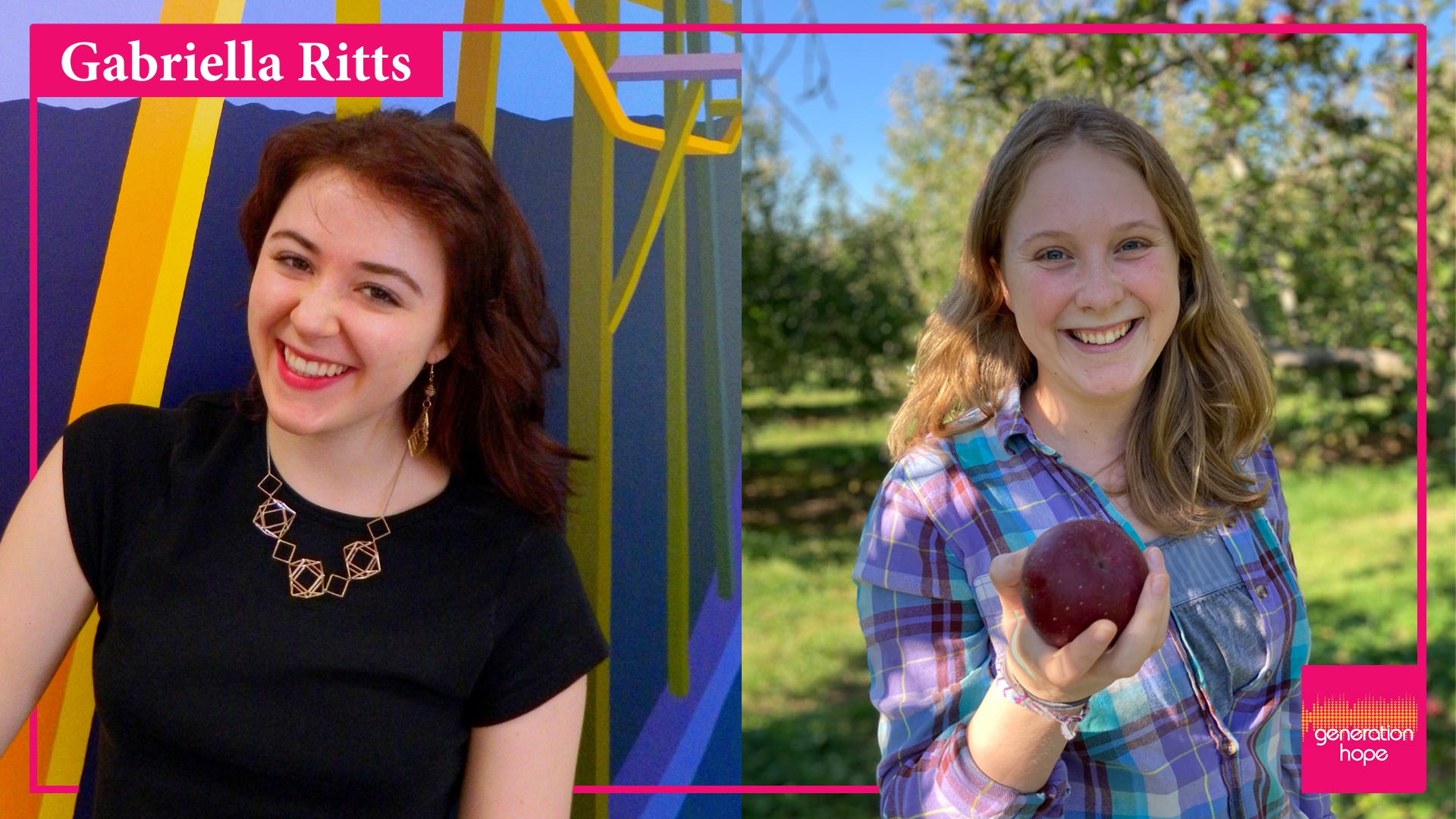
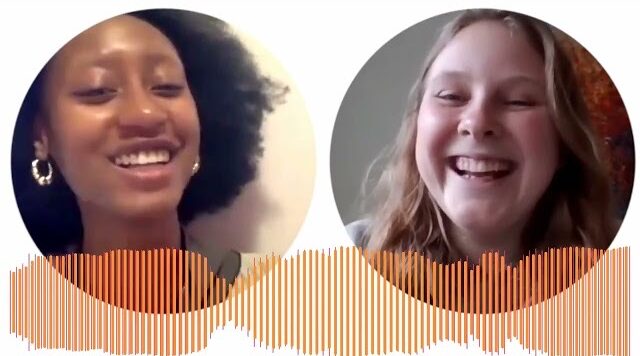
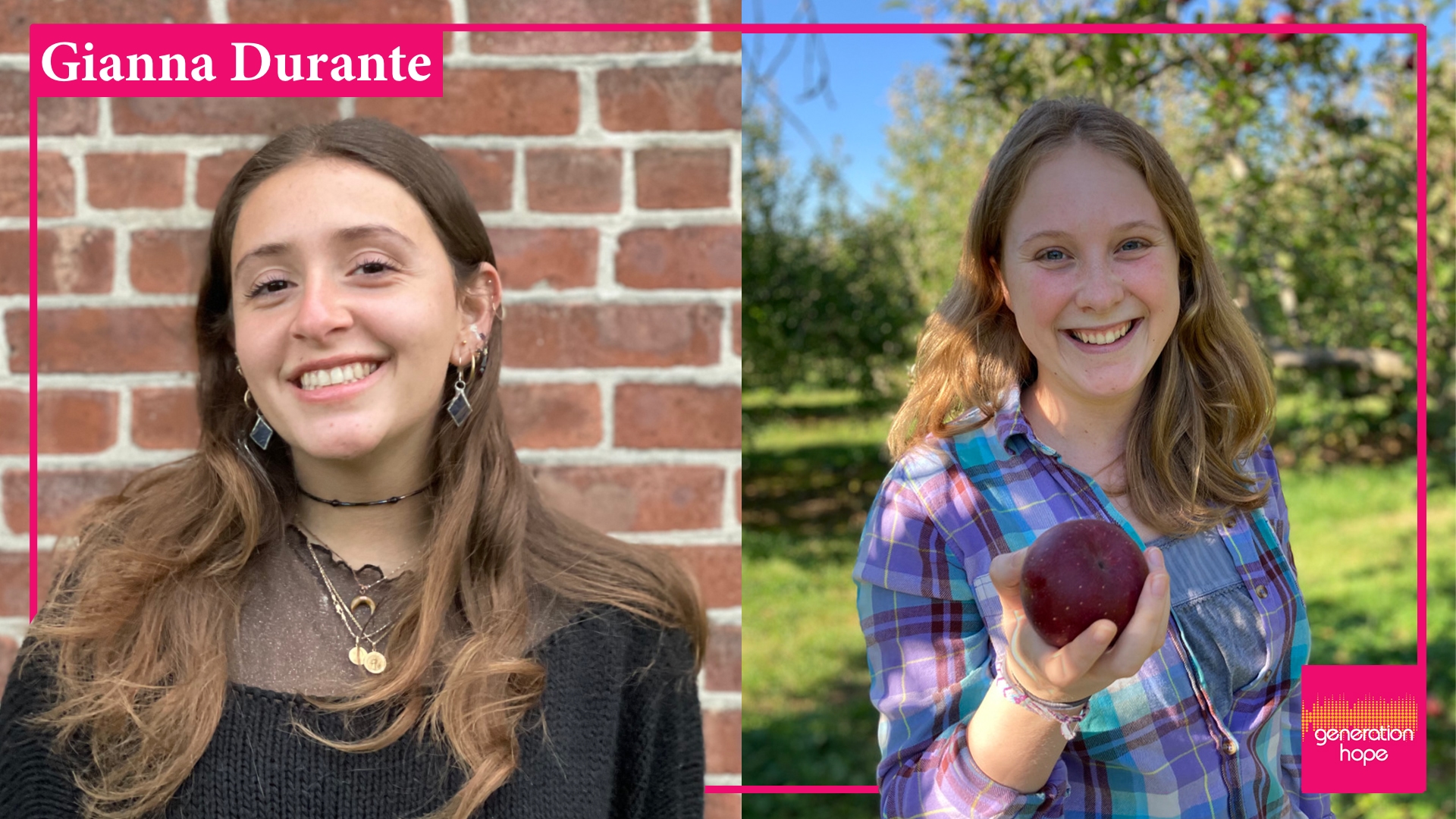
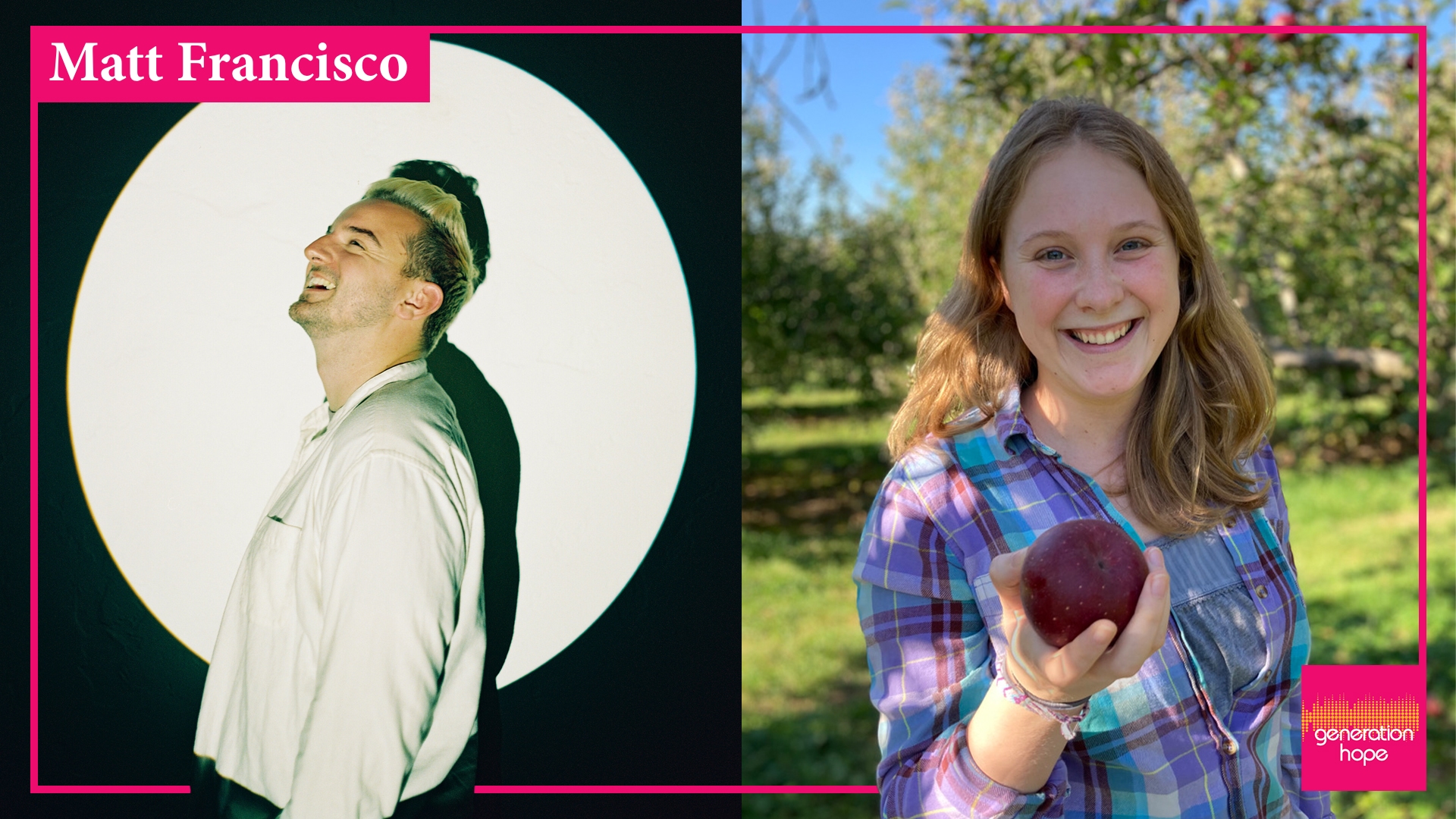
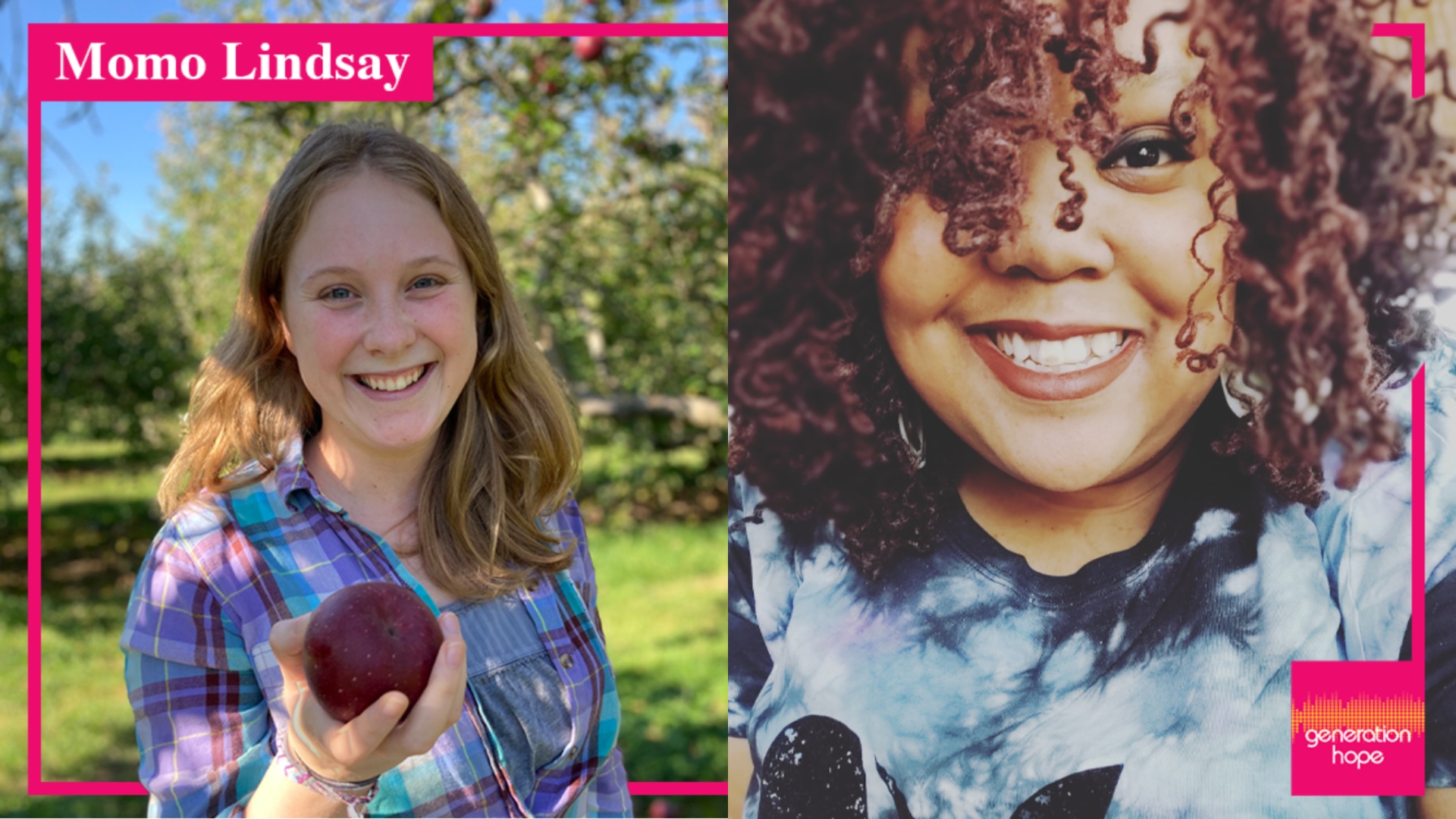

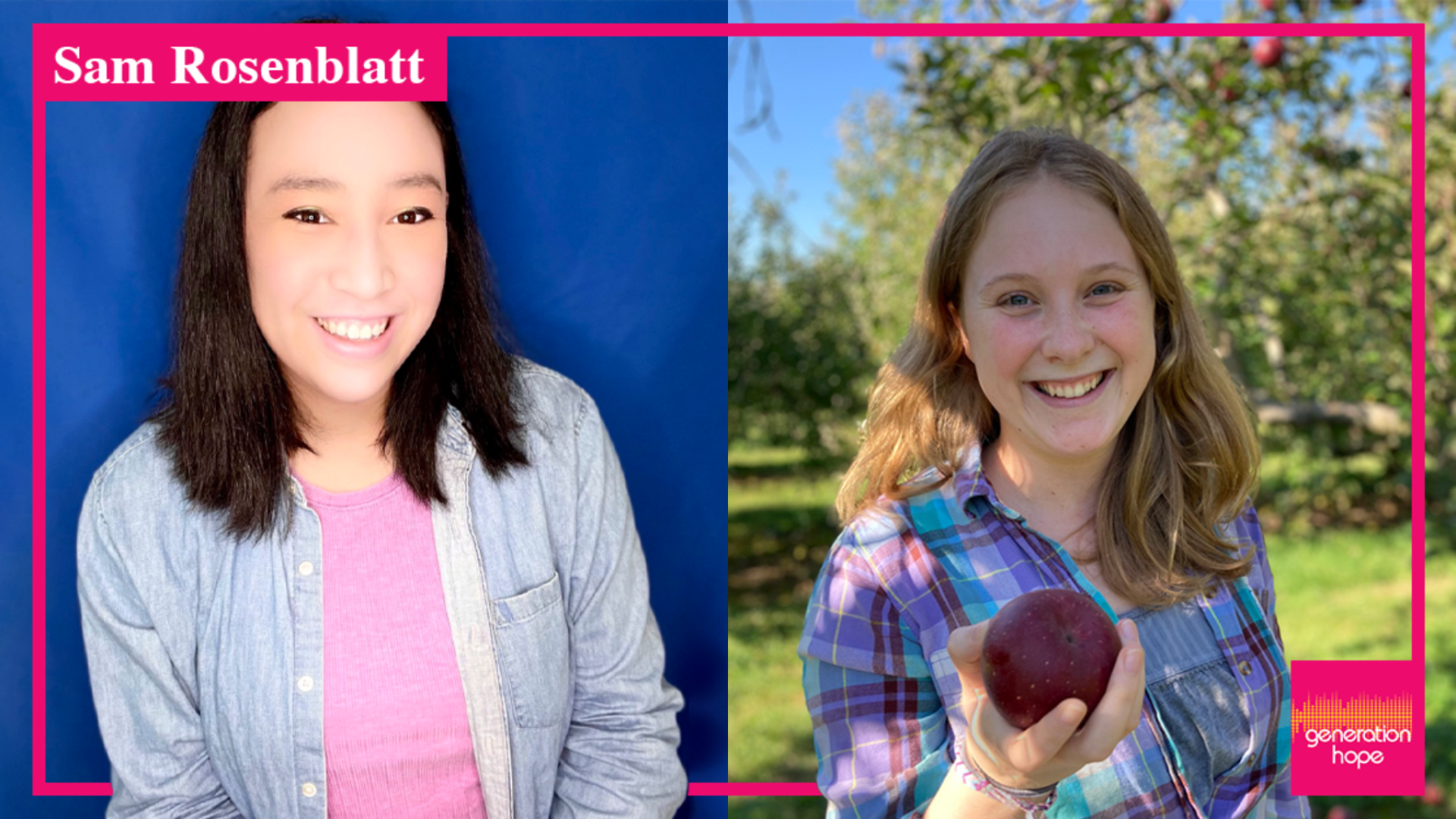
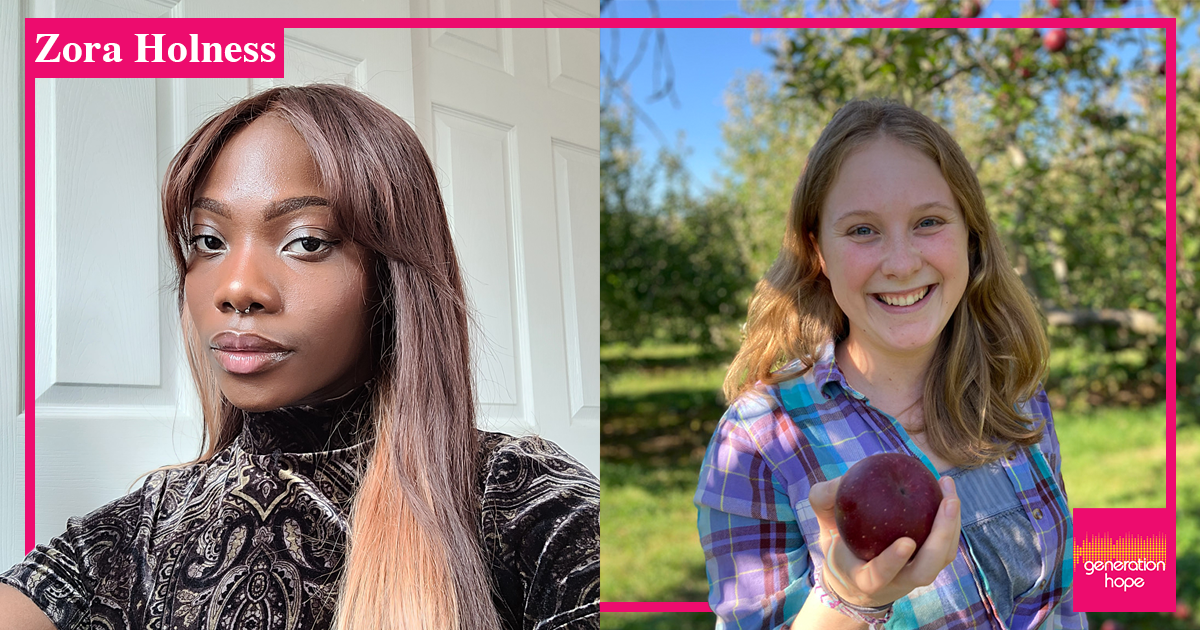
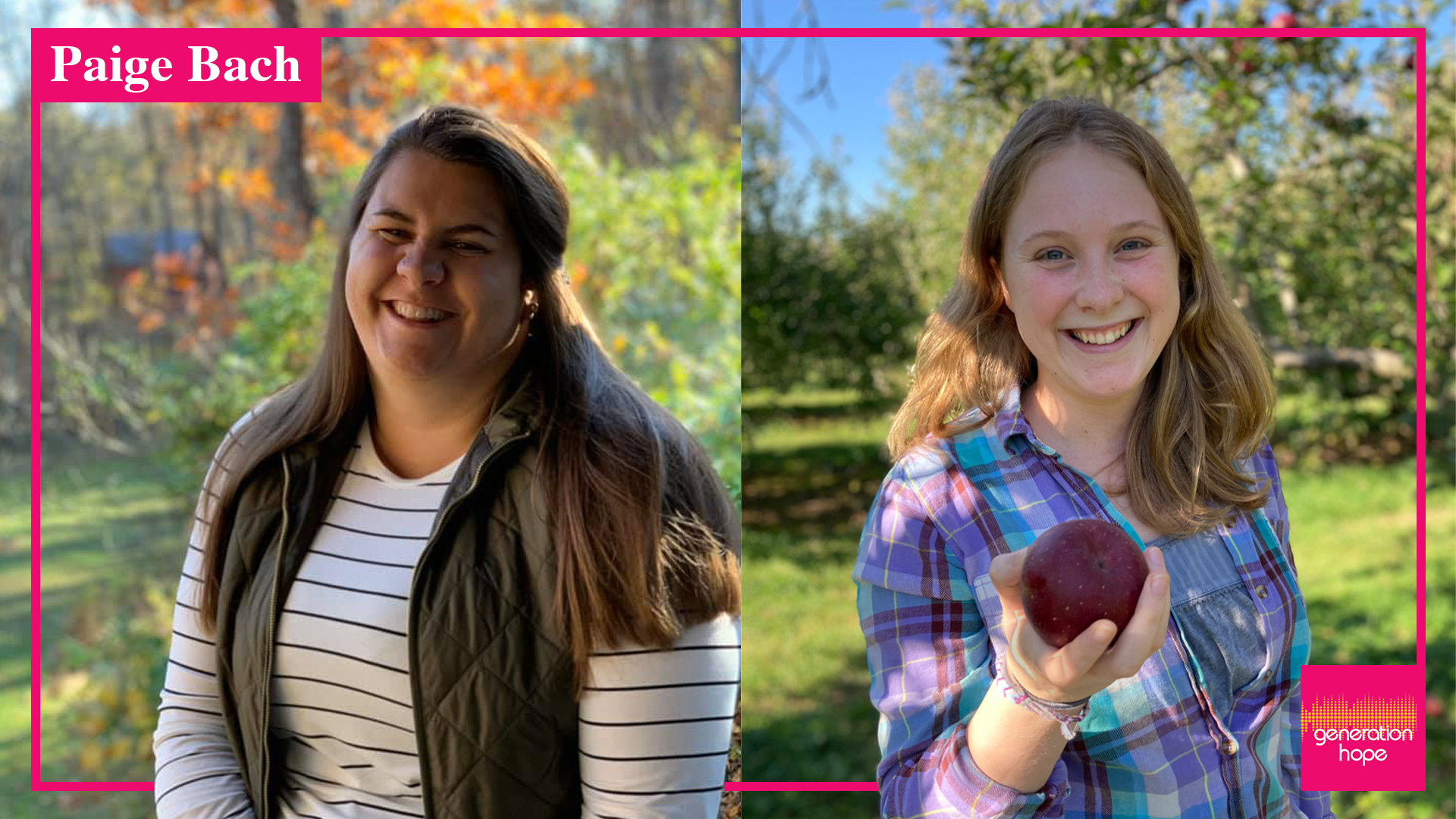
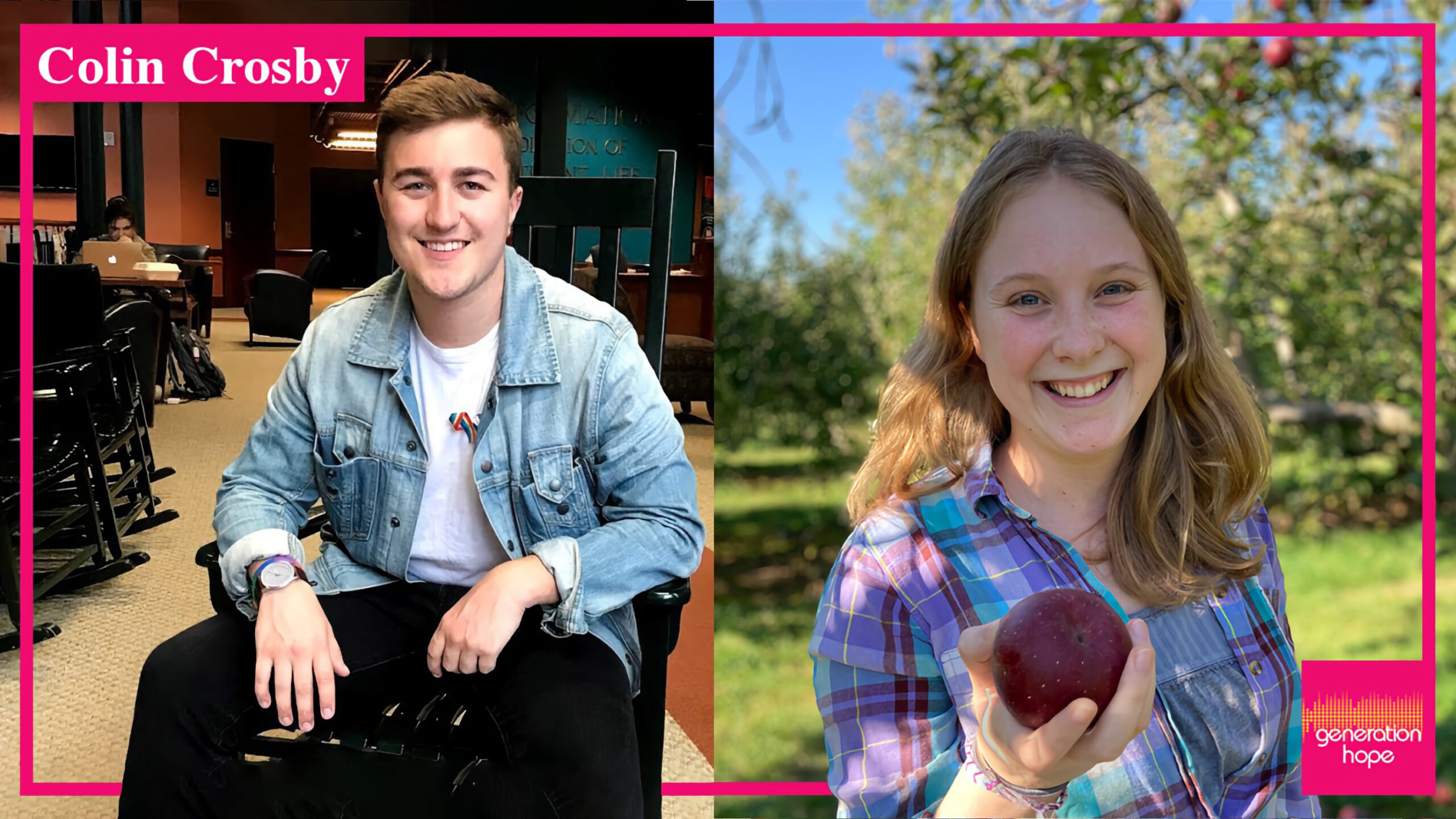
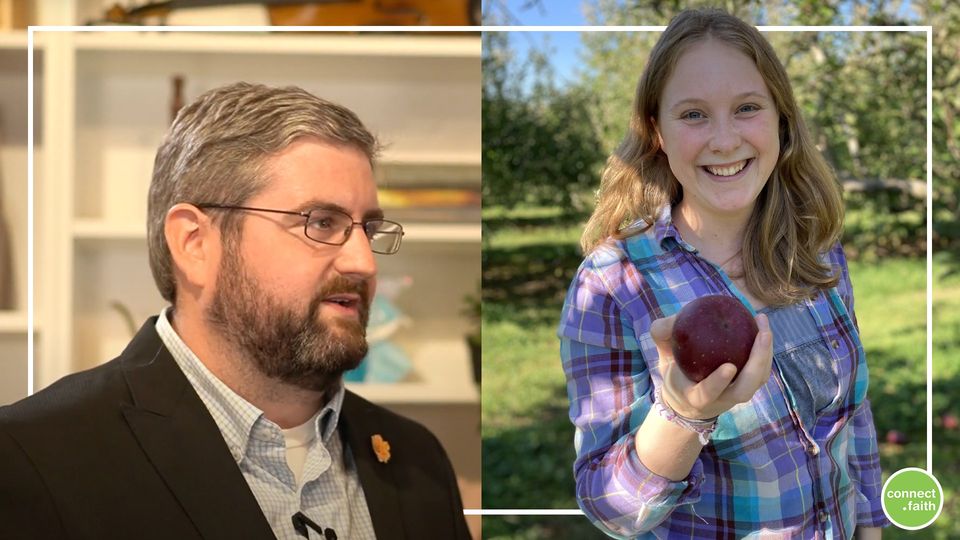
0 Comments